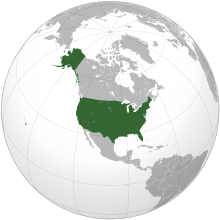Marriage Not Necessarily A Path Out Of Poverty
Policy makers often claim that marriage is a way out of poverty for Americans striving for the middle-class. As Governor Mitt Romney said during the second presidential debate, “…to tell our kids that before they have babies, they ought to think about getting married to someone — that’s a great idea because if there’s a two-parent family, the prospect of living in poverty goes down dramatically.” A new report from the Center for Economic and Policy Research demonstrates that marriage alone does not ensure economic security and that most parents with below-poverty incomes who are raising children are, in fact, married.

The report, “Married… without Means,” first documents the number of married non-elderly adults with incomes below the federal poverty line. (For a family of four the federal poverty line was $22,113 in 2010). By this definition, more than 7 million married adults had below-poverty incomes. Among non-elderly parents caring for minor children, nearly half of adults in these households – 43 percent — were married, and another 6 percent were married but currently separated. Slightly less than 40 percent had never been married.
However, these numbers do not capture the full extent of the problem. “While the federal poverty line has been adjusted for inflation since its creation in the 1960s, it does not account for the real growth in the economy and mainstream living standards over the last half century. This serves to further mask the extent of marital economic hardship,” said Shawn Fremstad, author of the report.
To correct for this, Fremstad also used a poverty line roughly equal to the same share of median income in 2010 as the federal poverty line when initially established. This contemporary poverty line comes out to $33,868, still less than the $45,000 to $50,000 that, according to a Gallup survey, most Americans agree a family of four needs to make ends meet in their local community. Using this contemporary, but still conservative measure of poverty, 13.5 million married adults have below-poverty incomes and a little more than half of the parents living below the poverty line and caring for children are married.
To shed further light on the issue of marital poverty, Fremstad also looked at the number of “prime-age adults” — those 30 to 49 year olds typically in their prime earning years – living below the contemporary poverty line. Almost two out of three of these adults had been married at some point. The report also points out that married adults who raise children are 56 percent more likely to have below-poverty incomes than married adults without children.
The data presented in the report make it clear that marital poverty remains a significant issue in this country. Most parents with below poverty incomes are married. Once these facts are recognized, policy makers can begin to expand and strengthen labor market institutions as well as universal systems of social protection against economic risks to reduce poverty and hardship while increasing economic security for families of all types.
